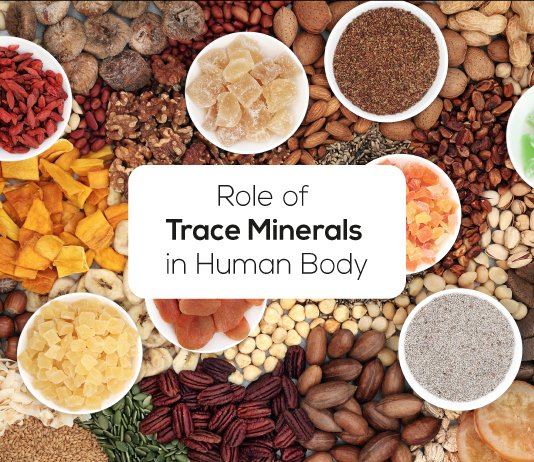
The Significance of Trace Minerals Such as Zinc, Selenium, and Iodine in Maintaining a Balanced Diet
A balanced and nutritious diet is essential for promoting overall health and well-being. While macronutrients like carbohydrates, proteins, and fats receive a lot of attention, trace minerals often go unnoticed despite their vital roles in maintaining bodily functions. Trace minerals, including zinc, selenium, and iodine, are micronutrients that are required in relatively small amounts but play significant roles in various physiological processes. In this comprehensive article, we will delve into the significance of these trace minerals and their contributions to maintaining a balanced diet and optimal health.
Understanding Trace Minerals: The Basics
Trace minerals are essential nutrients that the body needs in minute quantities to perform a wide range of functions. These minerals are involved in enzyme activity, cellular function, and various biochemical reactions. While the body requires them in smaller amounts compared to macronutrients, their absence or deficiency can lead to significant health issues. Zinc, selenium, and iodine are three prominent trace minerals that deserve special attention for their indispensable roles.
1. Zinc: The Multi-Functional Element
Zinc is a trace mineral that serves as a cofactor for numerous enzymes involved in critical biochemical reactions. Its roles span from supporting immune function and wound healing to DNA synthesis and protein metabolism. Zinc is also crucial for maintaining taste and smell sensitivity, promoting healthy skin, and supporting normal growth and development. This mineral is found in a variety of foods, including meat, dairy products, nuts, seeds, and whole grains.
2. Selenium: An Antioxidant Ally
Selenium functions as a powerful antioxidant, protecting cells from oxidative stress and damage caused by free radicals. It is a key component of selenoproteins, a group of enzymes with roles in regulating thyroid hormone metabolism, supporting immune function, and contributing to DNA synthesis. Adequate selenium intake has been associated with a reduced risk of certain chronic diseases and proper immune system functioning. Sources of selenium include nuts, seafood, poultry, and whole grains.
3. Iodine: Essential for Thyroid Health
Iodine is a trace mineral that is primarily known for its critical role in thyroid function. The thyroid gland requires iodine to produce thyroid hormones, which regulate metabolism, growth, and development. Iodine deficiency can lead to thyroid disorders, including goiter and hypothyroidism. Ensuring sufficient iodine intake is especially important during pregnancy, as iodine deficiency can negatively impact fetal brain development. Iodized salt, seafood, dairy products, and some types of seaweed are good sources of iodine.
The Role of Trace Minerals in a Balanced Diet
Incorporating trace minerals like zinc, selenium, and iodine into a balanced diet offers a myriad of benefits:
1. Supporting Immune Function
Zinc and selenium are both crucial for a well-functioning immune system. They contribute to the production of immune cells and enhance the body’s ability to fight off infections and diseases.
2. Promoting Antioxidant Defense
Selenium’s role as an antioxidant helps protect cells from oxidative damage, which is linked to aging and various chronic conditions, including cardiovascular diseases and certain types of cancer.
3. Regulating Hormonal Balance
Iodine’s importance in thyroid hormone synthesis ensures that metabolism, energy production, and overall hormonal balance are properly maintained.
4. Enhancing Growth and Development
Zinc is essential for growth, development, and wound healing, making it especially crucial for children, adolescents, and pregnant individuals.
5. Ensuring Cognitive Function
Iodine’s role in brain development highlights its significance for cognitive function, especially during pregnancy and early childhood.
Balancing Trace Mineral Intake
While trace minerals are essential, it’s important to note that excessive intake can also have negative effects. Therefore, achieving a balance is key. Consulting with a healthcare professional or registered dietitian can help determine individual dietary needs and ensure that trace minerals are obtained from a variety of sources in appropriate amounts.
Conclusion
In conclusion, trace minerals such as zinc, selenium, and iodine may be needed in small amounts, but their significance in maintaining a balanced diet and optimal health cannot be overstated. From supporting immune function and antioxidant defense to promoting thyroid health and proper growth, these trace minerals play vital roles in various physiological processes. Incorporating a diverse range of nutrient-rich foods into one’s diet is essential to ensure a sufficient intake of these trace minerals and reap their countless benefits for overall well-being.



